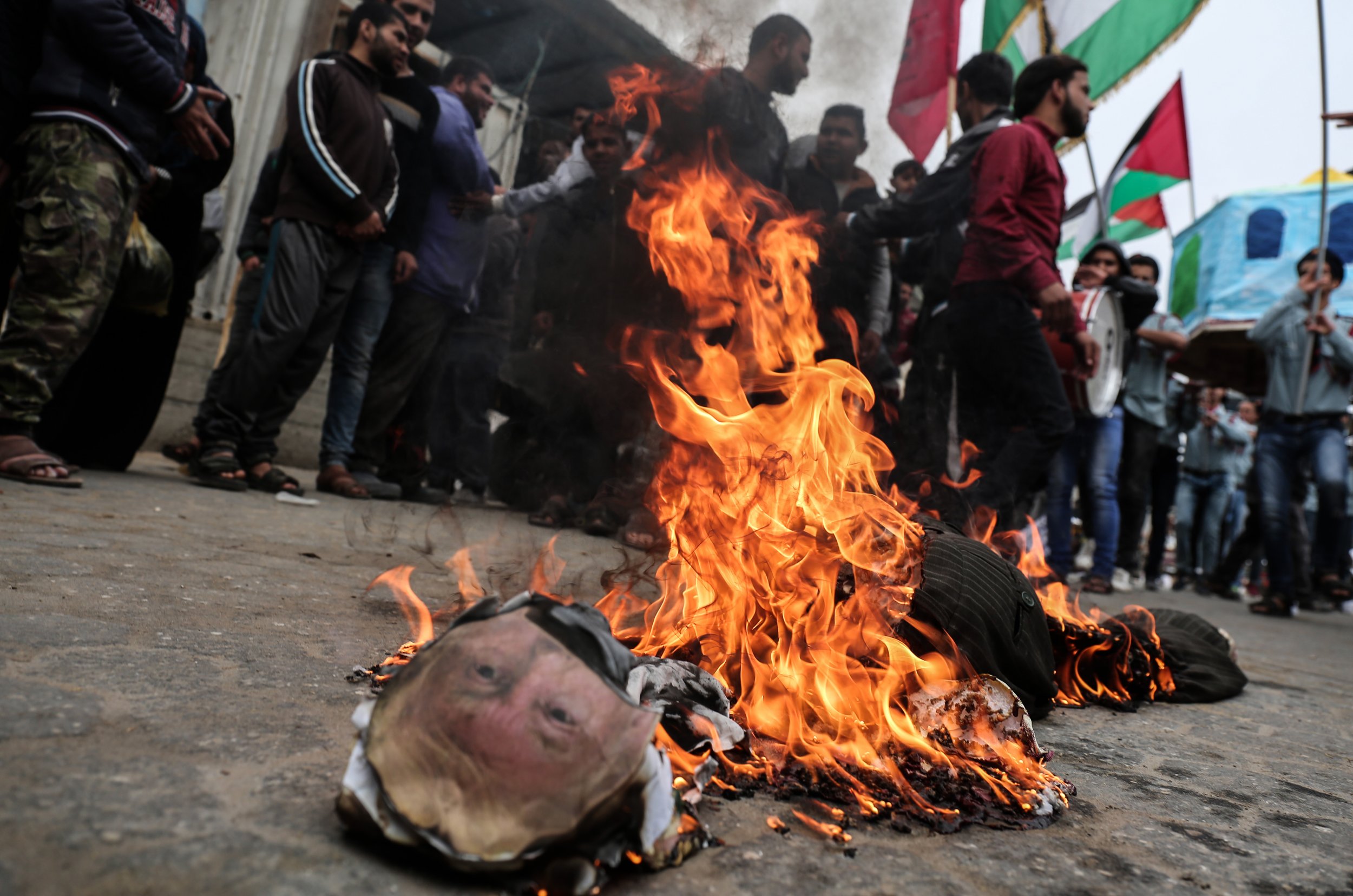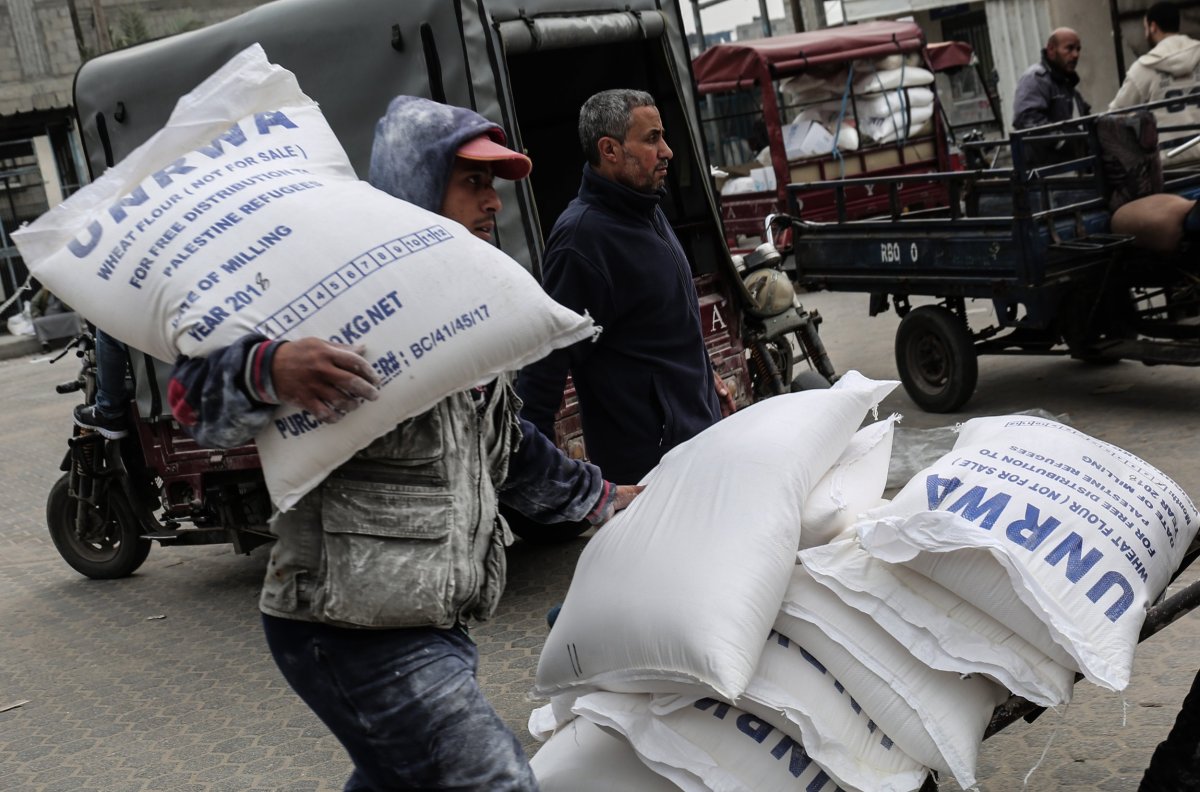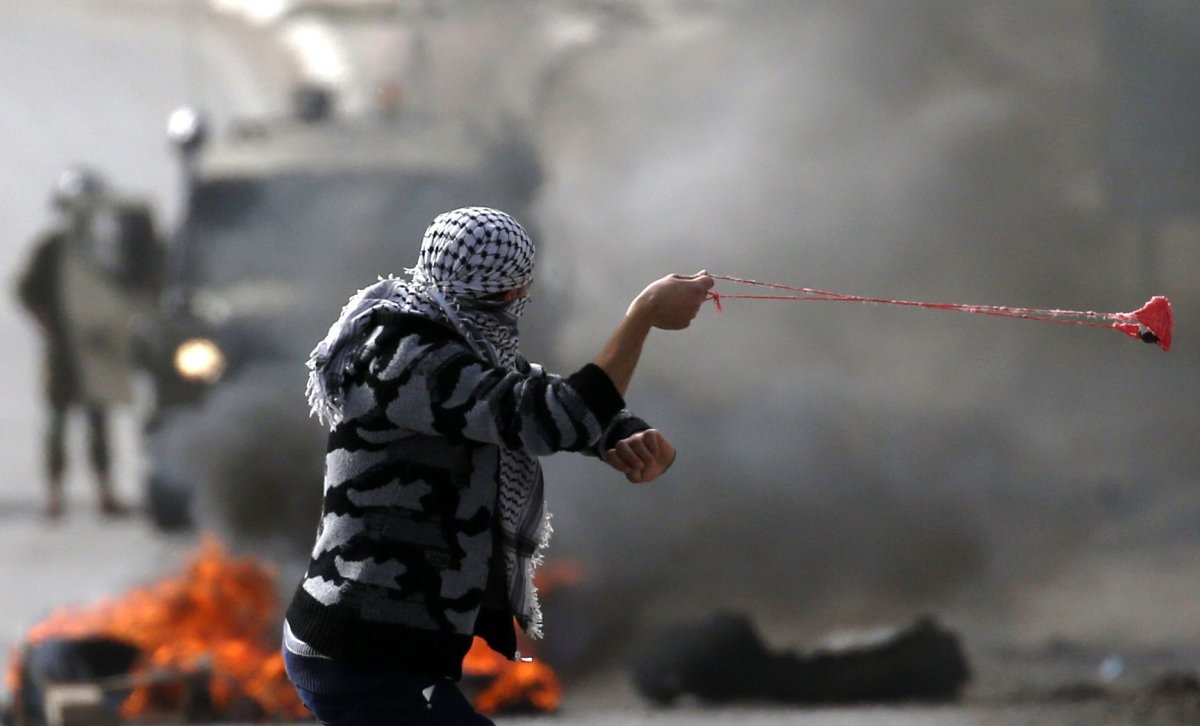
U.S. President Donald Trump's cuts to America's foreign aid budget are putting the lives of more than 1 million refugees at risk and threaten to radicalize a new generation of Palestinians, according to the head of the United Nations Relief and Works Agency (UNRWA).
Pierre Krähenbühl, the UNRWA commissioner general, said the agency is facing the deepest budget cuts in its history, threatening its ability to support approximately 5.3 million people, including 400,000 inside Syria, The Guardian reported.
The UNRWA has convinced other countries to speed up the delivery of promised funding to keep education and health services running until summer. However, Krähenbühl said the agency only has the money to feed 1 million refugees in Gaza and 400,000 in Syria for a matter of weeks.

"Last year, the U.S. provided $364 million. This year, it has announced only $60 million," Krähenbühl told The Guardian, noting that the $60 million provided could not be spent helping Syrian refugees in Lebanon and Syria. "We are used to dealing with funding crises, but this is the biggest and most severe in our history."
"I have just come from the Munich security conference," Krähenbühl said. "At every seminar, people were asking the same question about security and how we combat radicalization. If you want to ask us how to avoid radicalizing Palestinian youth, then it is not by cutting $300 million in our funding."

In his State of the Union address in January, Trump said he would ask Congress to pass legislation dictating that U.S. aid would only go to "America's friends," tying access to the $42 billion per year aid budget to support for U.S. foreign policy.
The U.S. government had already announced it would cut aid to the UNRWA after U.N. Security Council members voted to denounce Trump's decision to officially recognize Jerusalem as the capital of Israel. Trump's announcement represented a violent break in decades of American diplomatic precedent. Both Israelis and Palestinians consider Jerusalem to be their capital city.
The embassy move caused anger among Palestinians, with one-third of Palestinians now supporting a renewal of anti-Israeli violence, according to a recent poll. Israel's domestic security service, Shin Bet, said that the number of Palestinian attacks in Gaza and the West Bank tripled in the aftermath of Trump's announcement.
Political dislocation combined with reduced funding for vulnerable refugees provides a fertile breeding ground for radicalization. Several militant groups maintain a presence in the region's refugee camps in the hope of recruiting angry and disaffected youths, who have few opportunities for legitimate employment.
Refugees have organized protests outside the UNRWA offices in both Gaza and the West Bank as the services offered by the agency dwindle under budget pressures. The protesters forced the closure of the office in the West Bank city of Nablus on Wednesday, and pledged to continue demonstrations in the coming days, according to the Turkish Anadolu Agency.
The UNRWA was set up in 1949 to help Palestinian refugees displaced by the conflicts surrounding the creation of Israel in 1948.
Uncommon Knowledge
Newsweek is committed to challenging conventional wisdom and finding connections in the search for common ground.
Newsweek is committed to challenging conventional wisdom and finding connections in the search for common ground.
About the writer
David Brennan is Newsweek's Diplomatic Correspondent covering world politics and conflicts from London with a focus on NATO, the European ... Read more
To read how Newsweek uses AI as a newsroom tool, Click here.








